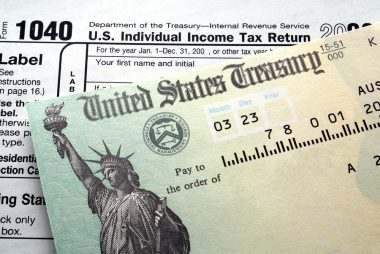Seven Steps to Make Extra Student Loan Payments Count
The moment a student takes out a loan is not often the time they think about how to repay them. But, the reality is the moment you sign on the dotted line, you need to figure out how you are going to pay it back.
However, for many borrowers this time has already passed. So, here are seven steps you can take to start making extra payments on your student loans that will make a big difference in your student loan balance.
1. First, you need to know exactly where you stand.
A great many borrowers have multiple loans. So your first step is to write down all of your loans and include the balance, the minimum payment required and the interest rate on each loan.
2. Create a budget so you know how much you can afford to pay each month.
Your second step will be to determine the amount you can afford to put toward your student loan debt that will satisfy both your minimum payment and some extra to start reducing your debt. The best way to do that is to figure out exactly where you are financially with a spending plan. There are myriad free budgeting apps online, but pencil and paper will work just fine, too, as long as you include all of your income and all of your expenses. You just need to figure out what works best for you.
3. Decide on a strategy.
There are two well know debt repayment strategies to consider, the snowball method and the avalanche method. The snowball method is when you pay the loans with the smallest balances off first. The way the “snowball” works is that as soon as one loan is paid off, the amount you have been paying on it is then rolled into your next loan. It is important to continue to make the same payment (or more) so that the effect will continue until your loans are all paid in full.
The Avalanche method is when you order your loans from highest interest rate to lowest interest rate and tackle them in that order. This one will borrowers to pay less overall in interest but sometimes it’s more motivating to see the smaller loans disappear quicker.
Either way, once you have identified some extra funds, you want to be sure that you are making them count. Student loan payments are set up so that interest and fees are paid first from your monthly payment. Only after those amounts are satisfied for the month will any of your payment go toward reducing your principal balance.
4. Make sure the extra payments are going where you want them.
With that in mind, your third step will be to contact your lender and tell them what you are planning to do. Tell your lender how you want any amount you send in that is more than the minimum payment to be applied. We recommend a blend of the avalanche method and the snowball method for the most efficient repayment strategy.
Tell your loan servicer you want the extra funds to go to the loan with the highest interest rate first. If you have loans with the same interest rate, ask that the additional funds be applied to the one with the lowest outstanding principal balance. Also, tell them that as loans are paid off to apply the funds to your next highest interest rate loan and so on (as per the snowball method). If you don’t communicate your wishes, your lender will likely spread the additional amount over all your loans. The Consumer Financial Protection Bureau offers a sample letter to help you communicate your plans to your lender.
After contacting your lender, you will be on your way to making the extra payments that will reduce your principal balance.
5. Always be sure to make your student loan payment on time.
If you are late, you may be hit with late fees which will reduce the impact of your regular student loan payment. When making your extra payment, submit it one to two days after your regular payment. This will give the servicer enough time to process the first one and keep the extra from being applied to the next payment making all the extra funds go to the principal balance!
6. Check behind your servicer and make sure they have recorded your payment properly.
Mistakes happen. So if it has not been applied correctly, contact your servicer right away to get this fixed. Being able to pay down your student loan more quickly than expected is a great thing.
For those who are struggling with their regular payment, the NFCC offers comprehensive nonprofit student loan counseling. Counselors are available to walk you through all the repayment options and help you choose the one that works best for you.



